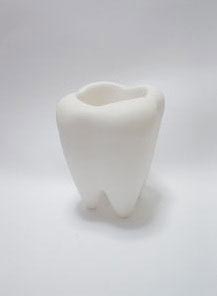Although remineralizing enamel is not at all impossible, the fact that the tooth enamel is a dead composition makes achieving enamel remineralization a bit hard. As the tooth enamel is a dead substance, there is no way it can regrow by itself.
It is only formed during the growing period of the tooth where most of the nutrient for growth is supplied by the dental pulp. Being the hardest and strongest substance in the entire human body and even stronger than our bones, enamel can withstand great impacts such as chewing and crushing of hard foods. Also as enamel is made up of more than 95% minerals, calcium phosphate specifically, its main weakness is that it is very prone to acid erosion. Once enamel is lost through erosion, it can never regrow back on its own.
What Causes Demineralization Of Our Teeth?
When the body is in need and is short of calcium, particularly during pregnancy when this mineral is especially important for the growth of the fetus, this vital mineral is leeched from the enamel of the teeth. This leeching process is known as demineralization of teeth which makes the teeth even more prone to the softening of the enamel. Ultimately this helps speed up tooth decay. As such, maintaining a diet rich in mineral particularly calcium is very important.

Tooth Remineralization
Enamel remineralization is actually a rather natural process. It is the exact reverse of the demineralization of tooth enamel. While remineralization of the enamel (a natural ability of the enamel to repair itself) is possible, it is a very slow process that takes place for the enamel to gain back what is lost through acid erosion. Enamel remineralization takes place through the interaction between saliva and minerals obtained from your diet.
Although enamel cannot regrow by itself, minerals can be added on to the enamel surface through saliva. Studies have found that only the enamel has this ability to remineralize whereas the dentin (the layer underneath the enamel) does not seem to have this ability.
How Long Does Remineralization Of The Teeth Take?
Tooth remineralization is a very slow process and it only works when provided the right condition. But most important of all, you will need a teeth that is clean, more saliva production, and a diet rich in vitamins and minerals for it to work. In addition, try to avoid taking highly acidic foods and drinks such as lemon juice, sodas as well as sugary foods. Those highly acidic environment around your teeth will not only erodes your teeth, it also prohibit the remineralization process from take place. To help the remineralization process, you can also try an enamel toothpaste.
Newer toothpaste with technology such as Pro-Argin (calcium carbonate) and Novamin (calcium sodium phosphosilicate) available in brands such as Colgate Sensitive Pro Relief, Sensodyne Repair & Protect and Dr. Collin’s Restore contains the necessary ingredients to promote rebuilding of the teeth by mimicking this slow natural remineralization process. Colgate Sensitive Pro Relief can be a great start. Once you have started, try to maintain that state and you should soon begin to notice that your teeth is becoming less sensitive as your enamel layer gets remineralized slowly. Remineralizing enamel naturally is hard to achieve and it really needs time. Be patient and once you get the idea of how it works, you will never have teeth problems again.





Hi. Matt..
have you tried quitting smoking and gtten your mineral levels up?!…….teeth cant remineralize without the proper building blocks…do a seacrh for this and your answer lies there…..
goodluck
M
i brush my teeth twice a day and floss and drink no soda or candy and no sugary or acidy foods and i still get cavities. what am i doing wrong?